The Art of Leaving the Family Home on April Fools Day!
Saying goodbye, my father's book collection and writing this story!
Tasks of the days to come….
We unpack our mother’s house who lived here with dad for so many years. I dreaded this moment of clearing her room, then Ivan came, my brother, all matter-of-fact and off-beat humour. Soon we are surrounded by the past, in this freezing cold UK morning present, choosing what we hand to our kids for the future. In boxed-up memories not looked at for decades tumble out hilarity, and soon mum and dad join us, for this family affair.
A family affair
This was written two months ago when we spent a few days pulling at the home with the tallest ceilings in the world, even the estate agent said she had never seen a home so high in the clouds, I like this description, Mum would have laughed and approved of the women, in her late twenties, just starting out in the world of selling other people’s homes.
We know the house is special. Mum made it special in her old fashioned way, and it is comfortable, Victorian, bay windows with the original stained glass in one of the rooms which is the hallmark of Victoriana. The window cleaner told us this, and that we should not change them as they are unique. I wonder if the new family will come and rip them all out, pull out the trees we brought back from the common as kids, and cut back the yellow rose bush which kisses spring with tiny buds that open like starfish palms trying to grab onto the pale spring sun.
Now has come
I wrote those words in my notes book, knowing that the time I dread is has come. It is here, now. We got the offer, the papers will be signed, and then we clear out.
I dread the clearing, the getting rid of, not needed now, put into the charity shop box. This I would like. Oh, I wanted that actually. Mum promised it to me. When. Oh, years ago. Well then, I’ll take this then …
We decided, and promised Mum, to not fight, to not argue, to be kind, to help each other, to watch each other’s backs. So, sorting is what we have to do, dreaded and sad. We keep our word to Mum, so it is, at least not fraught with unkindness.
The final farewell to the family home.
And you too, one day will face this. Or, have faced it. It is going to be hard, as you can not take an entire house with you. You have to delegate. I also dread the emotions left in corners, the memories in the hundreds of now faded photos where many of those people are no longer here, or, I will never see again. What to do with them all? I devised a system of scrapbooking photos, I offer it where I teach, yet my brothers, say dump them. We don’t need them. I put ‘them’ into a small suitcase to put under my daughter’s bed in her tiny flat, hoping she will not find them. She is going away for five days, so I will sneak as much as I can here, and what I can’t, will stay with a friend.
I am meeting Ivan on Wednesday next, we shall then begin to put stickers on what furniture is to be kept, what pictures, and so on.
I have been spending as much time as I can at the house. The rooms are at the skeleton stage apart from the sitting room which has not been touched, this was Mum' room. We all flitter around the room, this is the final bastion. The orchids are blooming, we have taken cuttings from the Christmas plant which is nearly 100 years old. There are all the family photos, the ones in frames that Mum spent the last years of her life, facing, her company. She never tired of looking at them. How can one recreate this? Even though I write about it, I shall film it. I can not take it with me. All the ornaments that need to live together, for apart they will no longer have any sense.
And, the ashes. Mum and Dad sit, side by side. Still. In the sitting room. She asked me to mix them together. My job. She did not ask the brothers, and this is OK. It is my duty.
Last night, I thought about where I would mix them, and how. We have a lovely Chinese Jar, big enough for the two of them. In mum’s garden is her tree, the plum tree she so loved to sit under. From August the first glows come onto the skins, and by October she would have picked them all. Buckets and buckets and buckets to make jam with or plum compote served with cream. This is the perfect place. I will use the rug from their bed and any spill just goes into the ground. We will then scatter some around the wild garden, and the rest I will take to my daughter’s till I can take them home to France.
I have just told Pat, my youngest brother, and he said he will help me, emotionally, by being there. Pat had a brain stroke five years ago and his speech is limited. But we don’t need to talk. I will bring his chair out to the garden and sit, like he’d do with Mum before she fell, this time, exactly, last year. (My post from last year here).
I sleep in the spare room, the bed propped up by the Victorian stained glass. Here are the remainder of Dad’s books. He replicated the same bookshelves we had in our childhood house. Hundreds of books, books we have grown up with. Ivan has sorted out a lot of them and will take them to the one day house he will buy in Lithuania or France. Dad was Lithuania-South African, Mum was French. Funny how we want to go back to our roots to move forward. Dad did not, he left South Africa to never go back, and, of Lithuania, there is but one photo of his family taken in some outhouse around 1890. His mother, Jeannette, my namesake, is the young women in the picture. What I love so much, apart from the fact they are my adoptive ancestors - is the carpet thrown on the floor to cover up a thread bare dwelling.
I have spent hours looking at them, getting to know them, those of the past. And they have spent hours on the wall looking out to the garden beyond.
Where will they go? To whom, and what wall will they embrace next?
Restless, not able to sleep, I pull out some books. I place them on the bed. These I shall read, one by one.
I open a page from William Somerset Maugham - A writers notebook.
1894: This morning Caserio Santo, the assassin of President Carnot, was executed; the papers are full of phrases such as : Santo died like a coward. But surely he didn’t; it is true that he trembled so that he could scarcely walk to the scaffold, and his last words were spoken in so weak a voice as hardly to be audible, but these words were the assertion of his faith: "Coraggio cugini—evviva l'anarchia!" ("Courage, cousins—long live anarchy!") He was faithful to his principles to the last ; his mind was as free from cowardice and as firm as when he struck the blow which he knew must be expiated by his own death. That he trembled and could scarcely speak are the signs of the physical terror of death, which the bravest may feel, but that he spoke the words he did shows strange courage. The flesh was weak, but the spirit unconquerable.
Here is a newspaper article from 1894
The full article is here from the Philadelphia Times - 3/08/1894
I find more articles about Caserio Santo. From what I read from first person reports, no, he did not die like a coward which the very young writer, Maugham also felt. Interestingly, years later Maugham would say: "the greatest writers can see through a brick wall – my vision is not so penetrating.” I also think that the photo of the ancestors is also taken around the same time that this photo is taken.
I put the book away to be read in full another time.
The next book I take is by Nadine Gordimer - The Late Bourgeois World written in 1966, to be banned by the South African Censorship board. Nadine was South African, a Jewess, and a political activist. She was one of the many S.A Jews standing against the regime. Her father was an immigrant Lithuanian watch maker, her mother English. Dad’s family were like her family, immigrants in one of the gold mining towns. Hers was East Rand and Dad’s was Kimberly. Dad never spoke about his family much, or S.A. There was shame for what he knew and experienced. He did not like injustice. There was anger, and he finally left to come to the UK to never go back.
The South African gold rush began after 1886, attracting many Jews. In 1880, the Jewish population of South Africa numbered approximately 4,000; by 1914 it had grown to more than 40,000. So many of them came from Lithuania that some referred to the population as a colony of Lithuania. (Martin Gilbert, The Jews in the Twentieth Century, (New York: Schocken Books, 2001).
Nadine Gordimer obituary from the Guardian
South Africa has produced several writers of stature in the past half century, but few have approached the achievement of Nadine Gordimer, who has died aged 90. A significant figure in world literature, Gordimer plumbed the depths of human interaction in a society of racial tension, political oppression and sexual unease. The connection between the intimate and the public lay at the heart of her work, an apparently inexhaustible stream of novels, short stories and essays.
An outspoken voice against the evils of apartheid, Gordimer continued to express forthright views after its collapse and the emergence of a multiracial democracy. Promoting even as she questioned white liberal values in her early work, she went on to espouse an increasingly radical position in the essays and fiction of the mid-1970s and later, openly supporting the liberation movement and associated cultural bodies such as the Congress of South African Writers. This led to her being for many years more widely acclaimed abroad than at home – where several of her novels were banned – until she became in 1991 the country's first winner of the Nobel prize for literature.
The first things I ever remember being told as a child was why a Jewish family had adopted me, a Muslim child. (My father was Lebanese Muslim, my mother, Franco-British. “Because you are special and we wanted to make a difference, make love, not hate.” Dad said. My inner mantra. Always.
I walk around the room. It is 3am. I want to read every book up on the shelves, for, once they are gone, they are gone.
I miss them so, so very much … Mum and Dad. Some of these books came from the bookshelf when they first married; happy, hipsters in Hampstead.
… When my father died it was like a whole library Had burned down… Laurie Anderson from World without End.
There are other books, on another huge shelf, his passion books I call them, the learning and 'how to do it' books. In his lifetime Dad had hundreds of passions. From the Mandolin, to writing, photography, mysticism, miniature boat making, steam trains, classical music, painting (of which he was pretty good.) Lathing, silversmithing which my niece Constance has inherited in her genes along with his tools making works of exquisite silver art LoveCutSilver. Dad was also a teller of fabulous tall tales around dinner tables; famous among his Fleet street journalist buddies.
Time ticks
The clocks have moved forward by an hour, screaming Spring is really here. Now is another day done. 31st March night. I can not write more than one Substack a month due to my other work which is teaching film and media, and my own filmmaking; then family and granddaughter, and this daunting task, the house. But my pledge to myself is, once a month, by the 1st, it is done. In half an hour it is the witching hour. Still so much to say.
Or, maybe I should leave it, read another entry by Somerset, finish my tea and take some more photos tomorrow, pick some delicate wild daffodils and put them in one of the tall vases. Listen again to the call of the sweet singing wood pigeons.
And I will pretend Mum and Dad have gone out for a very long drive, and will be coming home soon, wind-swept, happy with some more second hand books and some Spring bulbs to plant.
Yes,
That’s what I’ll do…
Thank you, as always for reading. I am sad though, it has been a very emotional year, however, to write, this Substack journal is to share what many of you have lived, or will live. Thank you for supporting my writing, my creations. And happy spring time to you all.
Jeanne with love
If you enjoy, please share or comment. For some reason, some people have told me that they can not comment directly onto Substack. I have asked, it seems it might be a glitch my end!
I have started a Podcast series.
Click on the link below..
This follows next to my website - Scatterflix, which is for documentary filmmaking and my Substack.


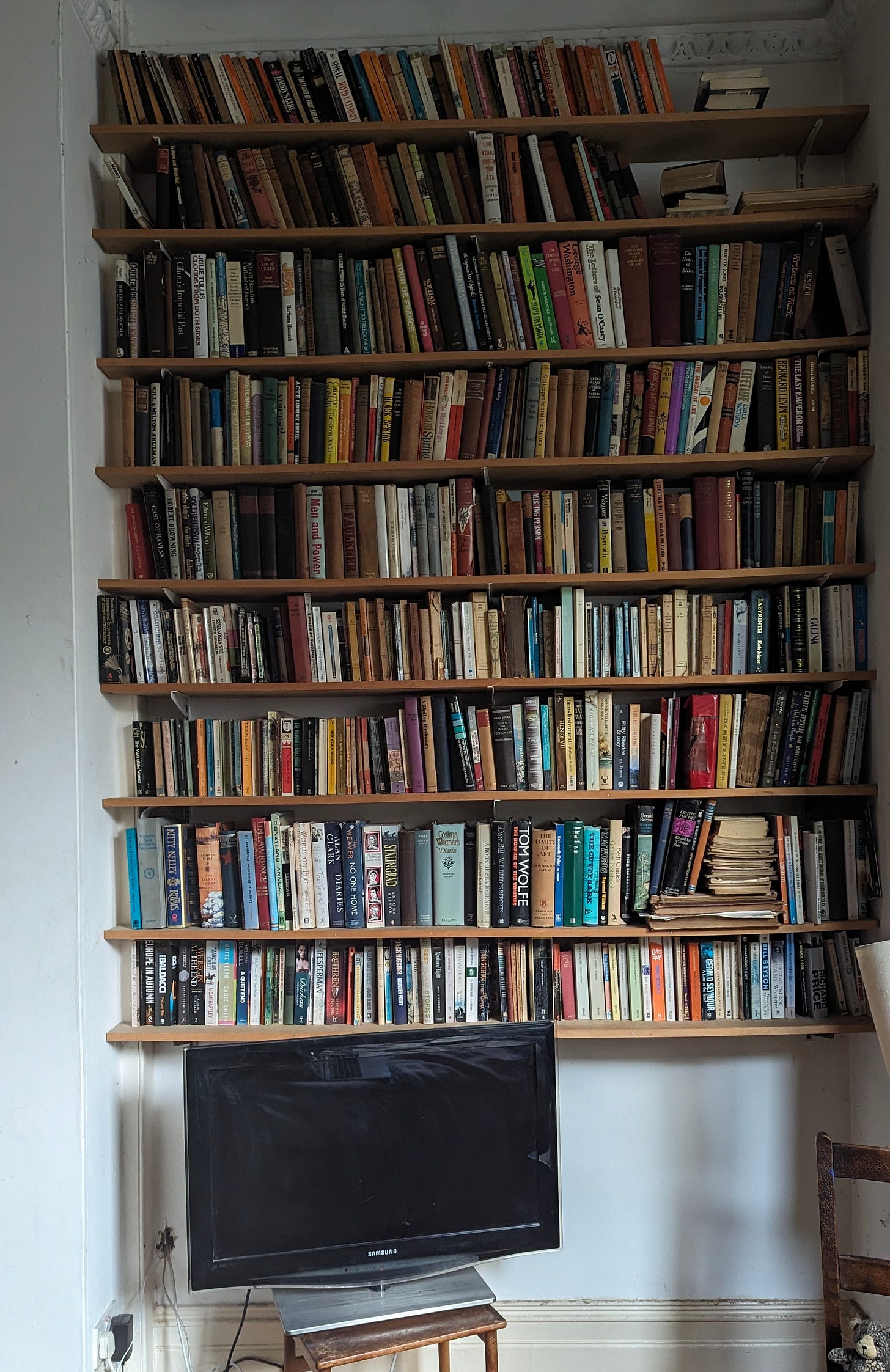
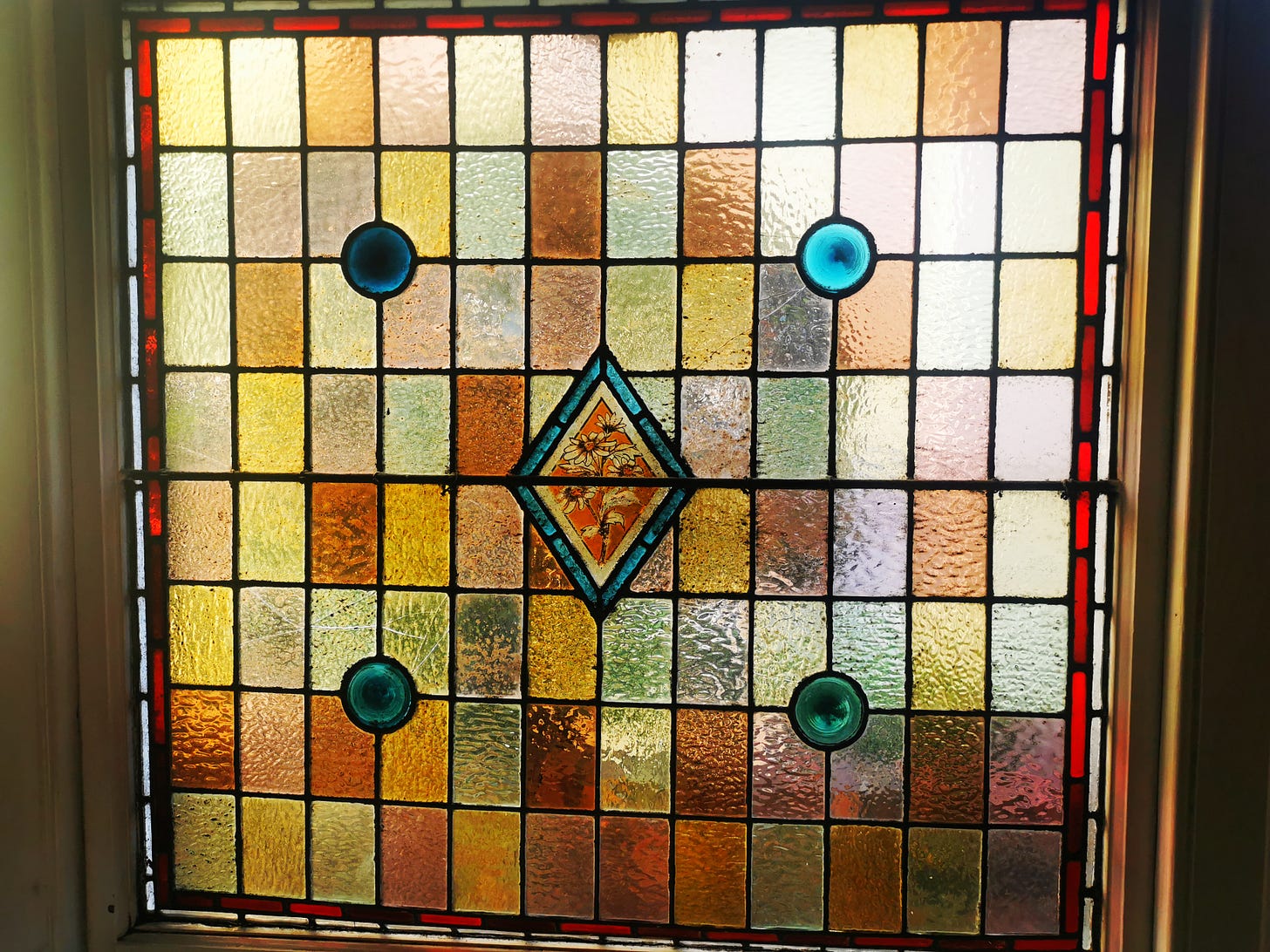
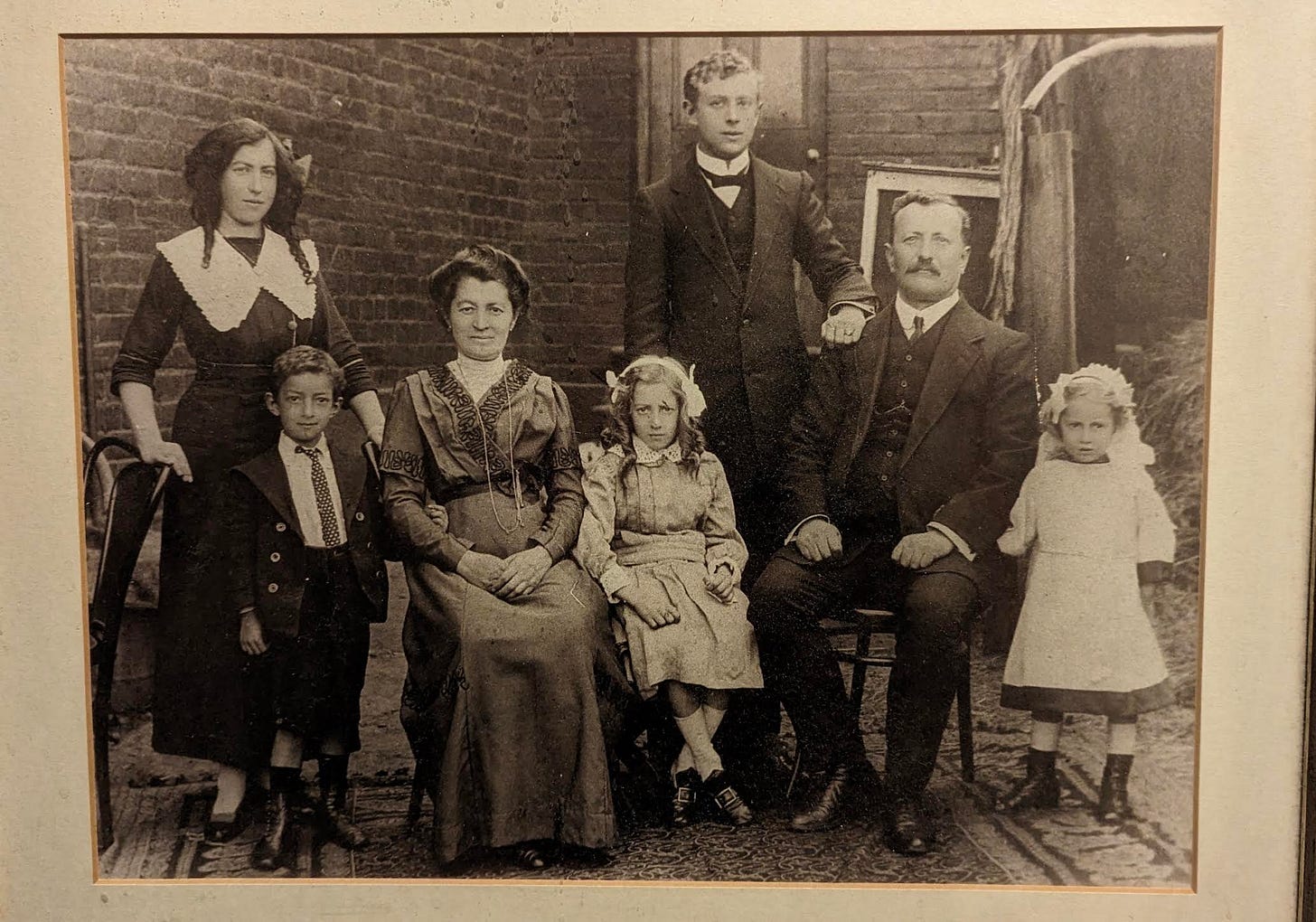
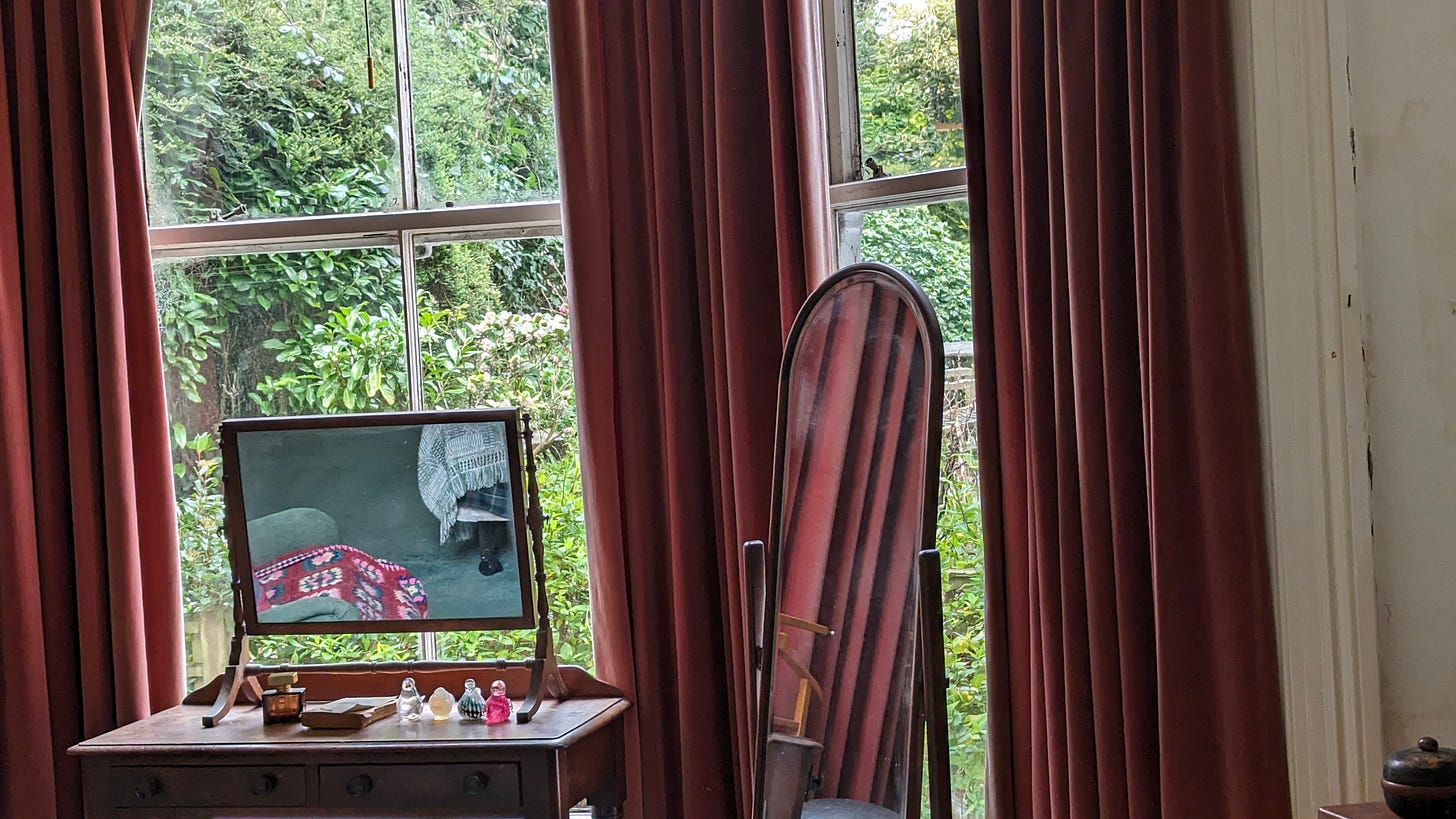
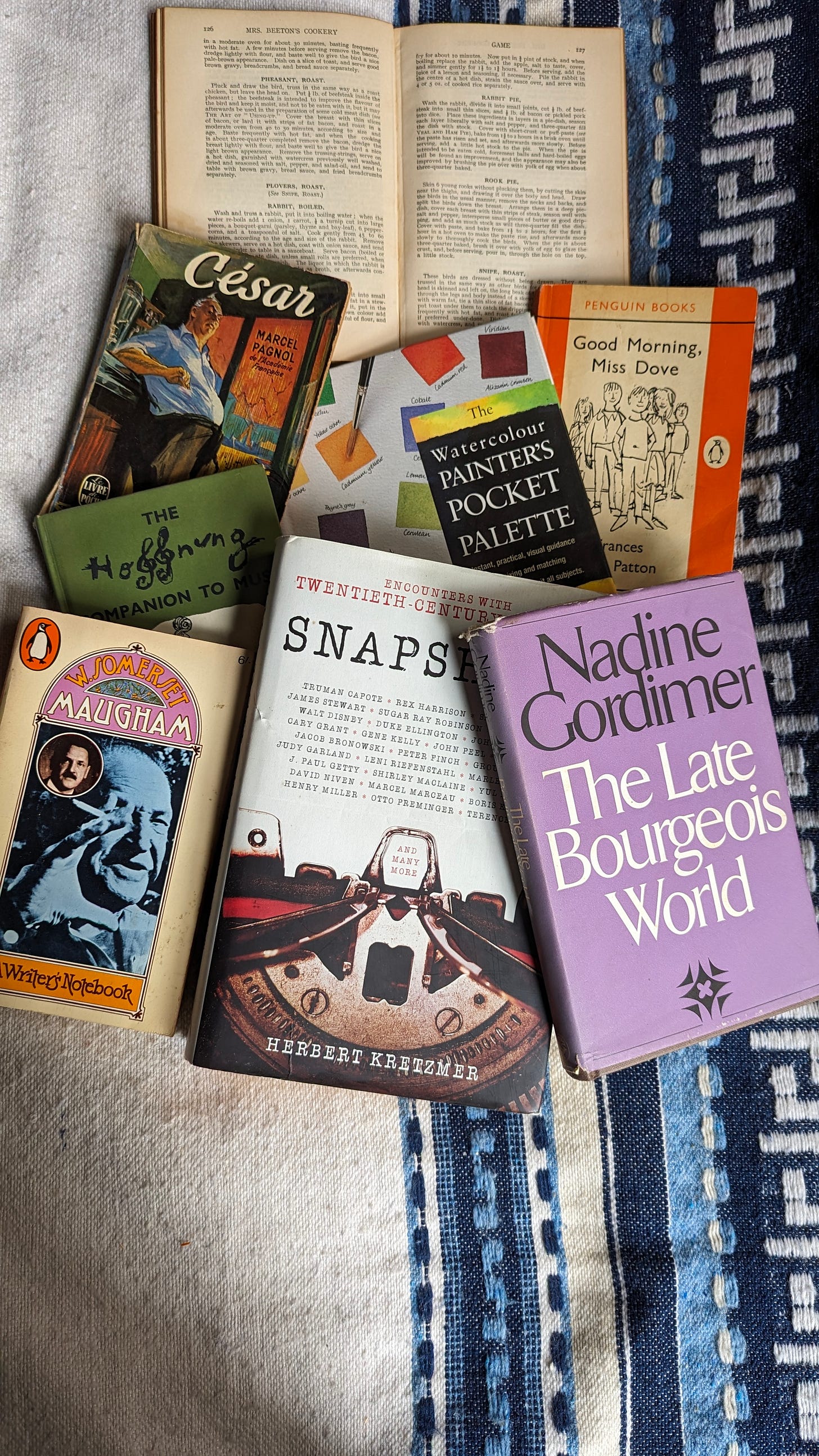



Dear Amie, thank you so much for your words. Alwaysx
Jeanne…so much raw emotion and heaviness of heart in this piece. I am right there with you. I, too, have felt the pang and heartache of loss. Writing through it certainly helps, if only briefly. You have done so remarkably. Thinking of you.